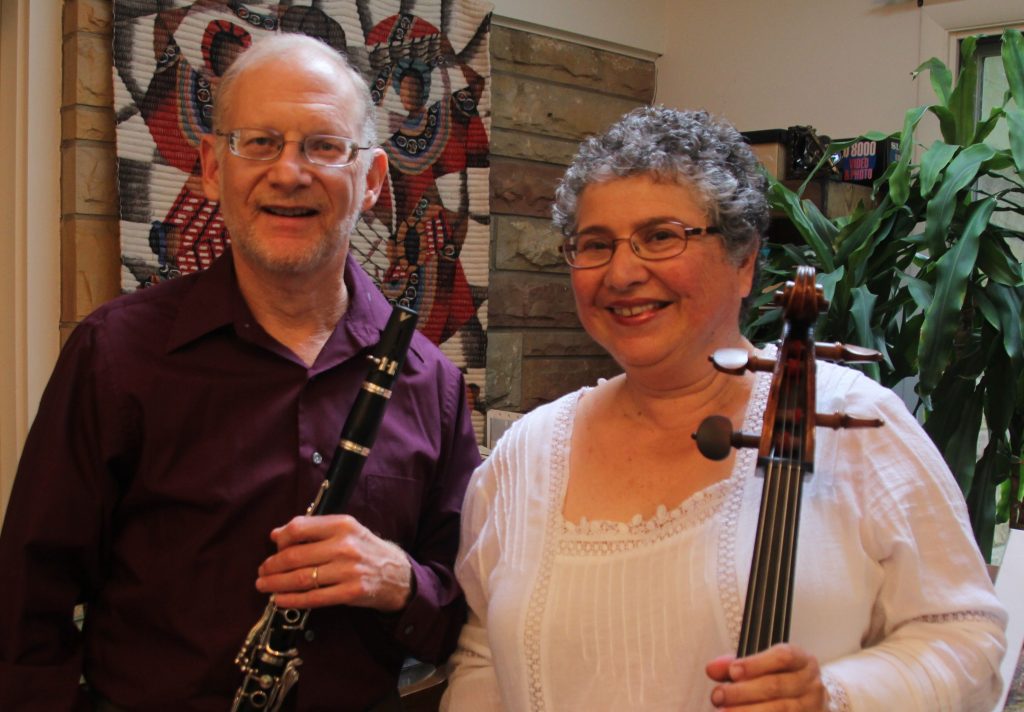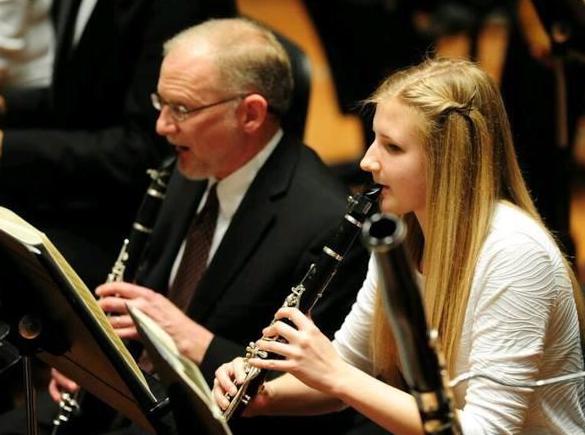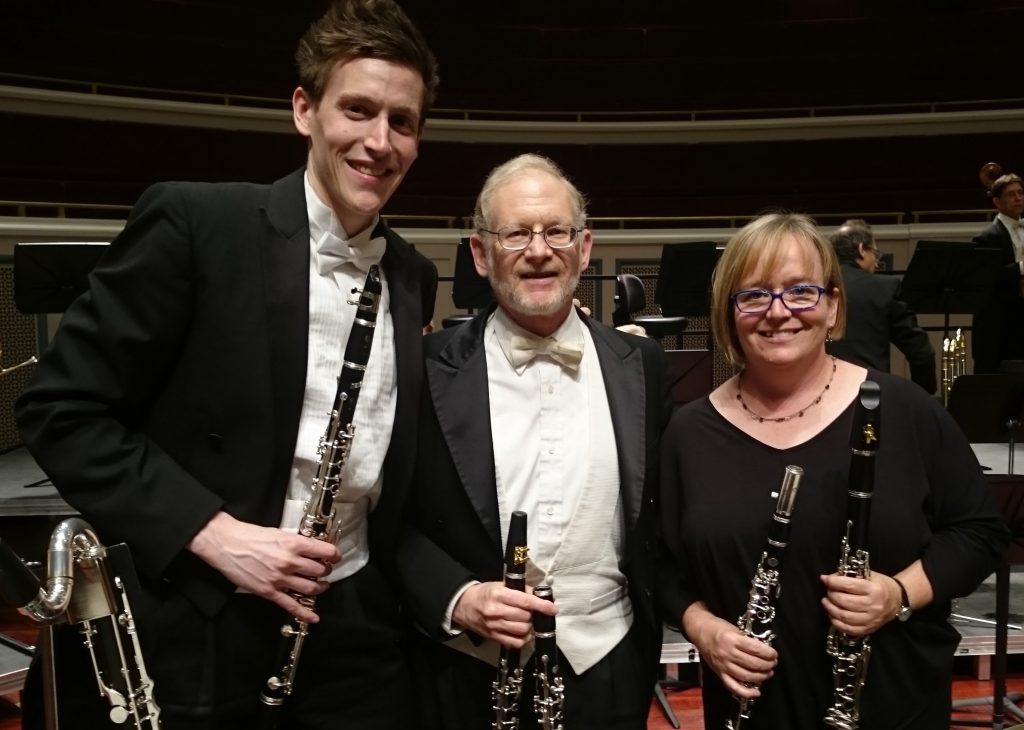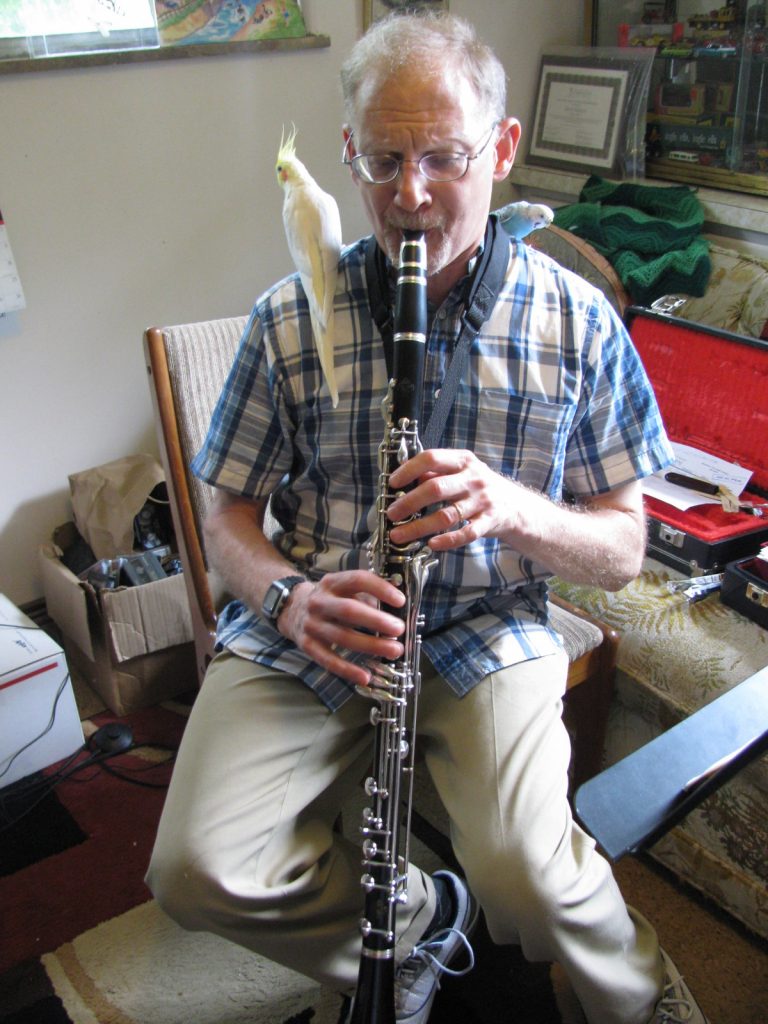Career Reflection: David Bellman

As I reflect on my favorite experiences playing in the ISO, I am drawn to memories of musical moments that I have been privileged to hear as I sat in the middle of the orchestra. As much as I loved playing in the orchestra, some of the greatest moments happened while counting rests in the clarinet part, as I waited to play.
For instance, there is magic for me every time I hear those first four timpani strokes and the following orchestral tutti at the beginning of Beethoven’s Violin Concerto. Beethoven’s 6th Symphony also begins in an awe-inspiring fashion which always sounds fresh and new. One more different (but equally compelling) type of experience is feeling (not only hearing) a long pedal tone in the double basses gradually growing and growing in intensity, building to the final climax in the slow movement of Brahms’ First Piano Concerto; difficult to describe in words, but unforgettable in my memory.
The ISO plays so many different styles and types of music over a season, and one wonders which types of music best serves our community. I believe that there is clearly a constituency for every type of performance that the ISO offers. “A Yuletide Celebration” is much beloved by so many; the orchestra hosts some really spectacular Pops performers and Jack Everly is truly masterful in his leadership of these concerts.

The Classical series is such a vital part of a symphony orchestra’s work. The works performed are among the greatest masterpieces in any artistic discipline that have been created by humanity, and need to be preserved and performed for generations to come. This is even true of many great pops pieces which also fall into this category of masterworks. Discovering and performing those masterpieces that are created by living composers is also an essential duty of a major symphony orchestra.
It is vitally important that leaders in the organization, whether in management, artistic, or board positions, remain informed and aware of the types of music and types of presentations that are in demand in the various communities that the orchestra serves and strive to reach out and serve those various constituencies in an equitable fashion.
Playing in a symphony orchestra involves quite a varied set of skills. Mastering one’s individual instrument is of utmost importance. A very high level of concentration is needed for extended periods of time in order to balance a continuous flow of multitasking which includes acute hearing/listening skills, interpreting visual cues and of course producing a high level of technical accuracy.
And beyond this, musicians, especially principal chair players, must create phrasing and expression which stems from within their own imagination and heart and/or from the interpretation of a conductor or colleagues in the orchestra. I have heard the stress and concentration level of a principal player in an orchestra compared to that of an air traffic controller in the control tower!
Physical fitness is also very important for musicians, as we tackle a wide range of needs from breath control, supporting our instruments, negotiating very large motions (for example, on a double bass or on percussion instruments) or controlling the most delicate muscles such as those of the lips or tongue for wind playing.

For me, one of the greatest challenges of playing in a professional symphony orchestra is to balance the amount and intensity of practice time in preparation for performance. We must practice enough in order to learn a vast amount of ever-changing repertoire from week to week, while being sure not to over practice so that there remains adequate physical, mental and emotional energy in order to perform at our best in the rehearsals and concerts.
In my home life, I have enjoyed having quite a variety of different pet animals such as tropical fish, a box turtle, Budgerigar parakeets and a cockatiel, two dogs and a cat (not simultaneously!) I always enjoy meeting the different animals that I encounter at friends’ homes. I have often thought that had I not pursued music as a vocation, I might have gone into a profession involving animals, perhaps becoming a veterinarian or working in zoology.

Since retiring in September, 2020 after spending more than 40 years as a professional musician (39 of those years as ISO’s principal clarinetist), I reflect on my life in music and realize that it could sometimes be a somewhat solitary one with much time spent in the practice room honing the physical and technical skills of the clarinet, and practicing many pieces and challenging passages within those pieces. Combine all that with time at the gym or bicycling or jogging to stay in shape, it’s not difficult to find oneself to be a bit self-absorbed.
Although playing music is a wonderful way of serving a community, I am happy to now be able to find additional ways of serving and helping others through volunteerism, donating blood more frequently and simply finding time to help a friend in need from time to time. And I can enjoy great memories of music making with such a fine ensemble as the Indianapolis Symphony Orchestra that I had the great privilege of being a part of for most of my adult life.